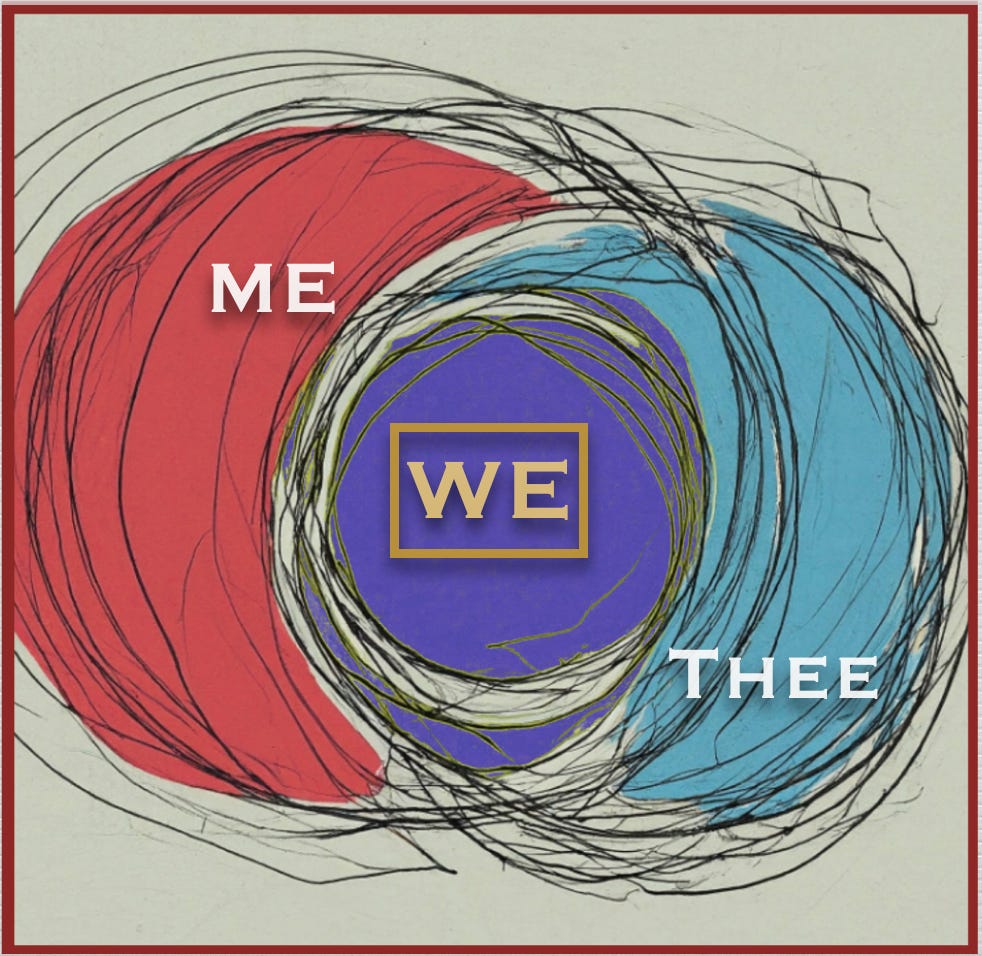You can’t find your tribe if you’re not wearing your colors
Only in mathematics is there an average
Recently
promised me that if I would do one thing for six months, it would make me “unrecognizable” to friends and family.I’m not sure that’s a goal I’ve ever had in mind but Tim is a credible Substacker (100K+ plus subscribers) so I read on and found what sounded like excellent advice … talk to more strangers, ignore rules, take risks, and be more of your weird self.
Tim says he’s weird with the subtext that he’s not “normal/average.” And, that stopped me … don’t we all think we’re weird, different, outsiders?
Reminds me of Garrison Keillor’s “Welcome to Lake Wobegon, where all the women are strong, all the men are good-looking, and all the children are above average.”
Who among us would claim that we’re “average?”
We might, perhaps, think it or even say it out loud on occasion: I’m just an average woman … man … consumer … writer … artist … voter … etc. However, each of us lives alone in a cocoon of our own weaving which can make us feel “all alone,” left out, different, not part of the gang.
Too often, we do not feel average, normal, part of a tribe. Turns out that’s true: we’re all snowflakes, individuals with unique genes, experiences, and life paths. Only in mathematics is there an average.
Should we reduce our sticking-out-ness?
Sometimes we try to plane down our differences, to shape ourselves to the perceived norms as if that would make life easier, make us fit in, be more likeable, more loveable. However, it’s our differences, our colors, that make us recognizable, that help us find our tribes.
Our difference can bond us to others who have compatible differences, and thus make us feel “at home,” connected, understood. However, of course, in sharp edged, rigid environments, our differences can also isolate us, threaten our safety, and even traumatize or kill us.
Two paths stretch before us … wear our colors in order to find our tribes … or be a protective chameleon and try to blend in.
Being part of society means that there’s a pull to “fit in” to the norms. If we fit in, we might pass for normal (what Tim calls average). But, there is no average, no normal. Simplistically, there is no purple; it’s only the purple parts of us recognizing each other and coming together, feeling connected, forming a tribe, fuzzy boundaries and all.
There is so much of red “weird me” which will never overlap with so much of blue “weird thee,” it’s a wonder we ever create that hallowed, purple ground of “we.” However, the more I accept my red self as well as your blue self, the more each of us might value and learn from our different colors, and the more we might expand and celebrate the new colors we form together.
In other words, in order to be more recognizable to our selves and others, it might help if we would: talk to more strangers, ignore rules, take risks, and be more of our weird selves.
Thanks, Tim.






I shared your first quote, about the orange tree, with my husband, he reminded me, "The orange tree doesn't have a choice."
I think about this topic a lot. As much as I like saying "be weird! Lean into your oddness!" and so on - I don't think I'm THAT weird, or that anyone else is either. I think we're all very roughly in the same part of the bell curve of weirdness. It's a very exceptional person who is so weird by default that they immediately stand out. If you're having to work to uncover your voice, and most of us do (I spent at least ten years at it), you're not really that weird.
I think where I agree with Tim is the difference between being weird and actually using what weirdness you have. It seems like we all operate under two needs, which seem contradictory at first glance: we want to be special in some way, and we want to feel part of something greater. And if you accept that you're mostly kinda normal and/or unexceptional, you can feel part of the communities you exist within, because we're all mostly "average" in that sense. But! If you can be unusually proactive in treating your life as an unfolding experiment, and open to curiosity and new things and new experiences and new friendships, you can be "special" in what you do.
(This can be a bit of a slippery slope into hustle-culture thinking: I Am The Best Because I Work Longer Hours Than You Losers. But it really means that we're treating our weirdnesses as skills, something that can be learned and improved and refine and honed, rather than innate abilities, Something We Were Born To Do, which is where people get a bit over-full of themselves and disappear up their own egos, or other people feel like they're destined to lose because they weren't "born weird", and so on.
Mark Manson also had some interesting thoughts on averageness: https://markmanson.net/being-average